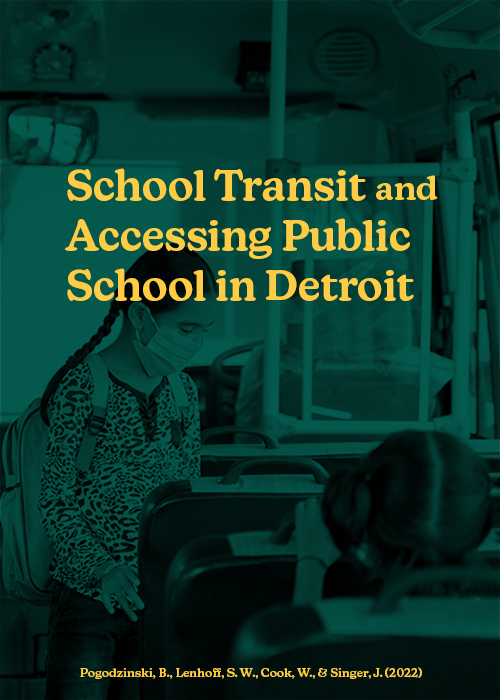Topic: Attendance
Detroit’s Educational Outcomes and Opportunities Across Race and Gender
Contemporary education policy is dominated by narrow representations of student data, resulting in a limited understanding of school inequalities. This study aims to show how educational outcomes and opportunities are differentially experienced when race and gender are simultaneously accounted for in Detroit. Analyzing educational outcomes and opportunities for students who live in Detroit, we examine differences by race and gender in areas such as math and reading achievement, high school graduation, chronic absenteeism, access to advanced coursework in high school, and special education.

Exploring the Relationship between Parental Work Schedules and their Children’s School Attendance
From our 2023 Association for Public Policy Analysis & Management (APPAM) conference presentation on the relationship between nonstandard work schedules, child behavior, child health, parent stress, and school outcomes.

Chronic Absenteeism in the School-Prison Nexus
This qualitative case study examines how attendance management practices are designed and implemented in a large urban school district and explores the empirical and conceptual relationship between student behavior and attendance management within the “school-prison nexus.” We use interviews with parents, high school students, and staff charged with reducing chronic absenteeism to demonstrate how managing students’ attendance through intervention plans, student monitoring, and threats of legal action have implicit and explicit parallels to the management of student behavior in schools and could be considered a potential mechanism through which the school-prison nexus functions. We conclude with implications for schools and districts as they seek ways to reduce chronic absenteeism without contributing to the over-surveillance and punishment of high school youth.
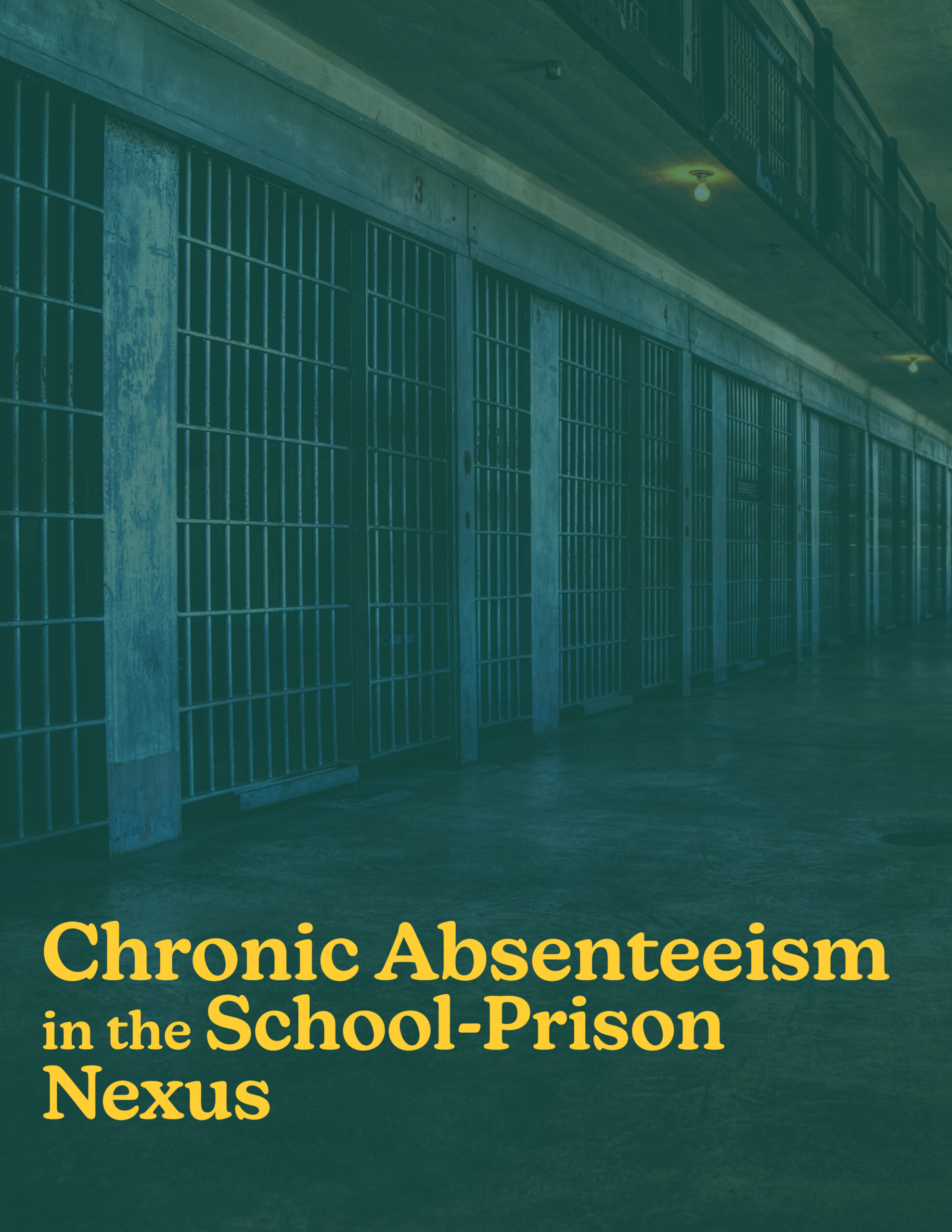
Gaps in Identification and Support for Students Experiencing Homelessness and Housing Instability in Detroit
Homelessness and housing instability can have significant negative effects on students’ academic and behavioral outcomes. Schools that endeavor to support students who are experiencing housing instability can only do so if they accurately identify students facing these challenges. This mixed-methods study provides deep, contextualized data on the experiences of housing unstable youth and families in Detroit traditional public and charter schools, whether and how they are identified as housing unstable by their districts, and what schools are doing to support them. We find that 16% of Detroit students were housing unstable in 2021-22, but Detroit schools only identified 4% of students as homeless under the McKinney-Vento Act. Our qualitative data suggest that this undercount is predominantly related to parents’ feelings of stigma and shame associated with discussing their situation with their schools and in some cases a lack of follow-through when parents do divulge their housing issue. Housing unstable students who were not identified by their districts as such were more likely to have been suspended; identification was not associated with attendance or student mobility, compared to other housing unstable students.
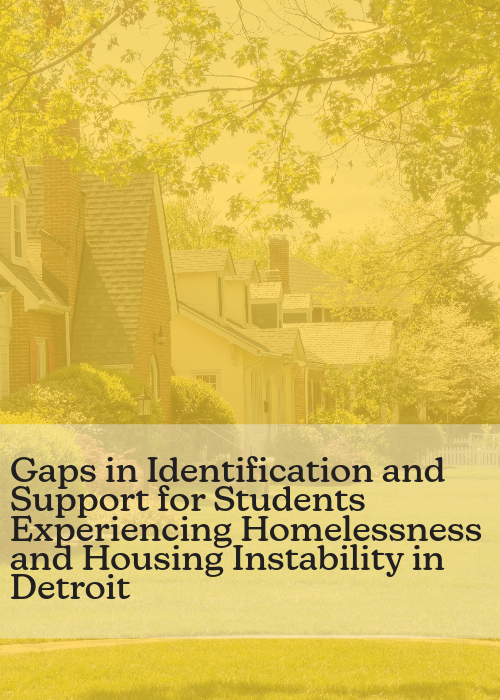
School Transportation Mode and Student Attendance Across Schools of Choice
The availability and reliability of school transportation is essential for regular student attendance at school. Yet, school transportation resources are stretched for both families and school districts in cities with widespread school choice, where students’ residences do not determine where they enroll in school. This study provides some of the first evidence on how Detroit students get to school. Going beyond eligibility for the school bus, we use linked survey and administrative data to determine how students get to school, the student and school characteristics associated with riding the school bus, and how mode of transit is associated with attendance.
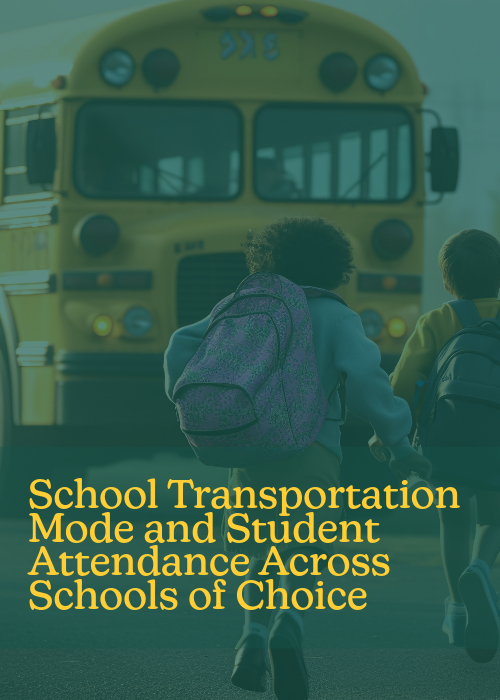
Why Students Miss School and What You Can Do About It – DPSCD Principal Academy, 2023
Our presentation for the 2023 DPSCD Principal Academy on the complex and intersecting causes of chronic absenteeism within Detroit schools. Included are policy recommendations for how to best support families and students in efforts to improve attendance.

The State of Detroit Schools, Students, and Families
This presentation was given in a series of State of the Schools events organized by our partner 482Forward.

Neighborhoods, Community Development, and Attendance
This presentation for the Strategic Neighborhood Fund's Workgroup focused on the connection between neighborhood conditions and access to education through enrollment and attendance.

Enrollment, Mobility, and Attendance in Detroit
This presentation for the State of Michigan's CEPI Longitudinal Data System Advisory Board showcased research on Detroit student attendance and mobility during the COVID-19 pandemic.

UCEA 2022 Presentation
Chronic Absenteeism in Detroit: Addressing Systemic & Structural Inequities through Participatory Action Research

09/30/2022
Every School Day Counts Detroit (ESDCD) 4 Pillars Project
This is a mixed methods developmental evaluation of the implementation and effect of a whole-school initiative to reduce chronic absence through the use of wraparound services, communications, technical assistance, and research.

Centering Community Voice in Chronic Absence Research: Detroit PEER’s Commitment to Participatory Action Research
This community voice post shares how Detroit PEER researchers worked with neighborhood groups in Springwells and Brightmoor to develop research into chronic absenteeism with community residents.

Parent Work Schedule and Student Attendance
This study examines how parents’ employment and work schedule are associated with student attendance in school and the probability of being chronically absent. It contributes new knowledge on how workplace polices outside of schools can shape what we typically think of as school outcomes.

Detroit Schools Attendance 17-18 to 20-21
This is a spreadsheet of attendance and chronic absence data from Detroit public schools (DPSCD and Detroit charters), aggregated from the CEPI Public Use Datafiles. It includes data from the school years 2017-18, 2018-19, 2019-20, and 2020-21.

Participatory Action Research to Reduce Chronic Absenteeism
This is a participatory action research project designed to address chronic absenteeism and its impact on Detroit neighborhoods. With Detroit PEER support, community members have designed and carried out comparative studies to understand youth and educator perspectives on chronic absenteeism. The goal of the project is to support schools with understanding and addressing chronic absenteeism based on youth-centered, contextually specific, and neighborhood-based information.

Attendance Agent Networked Improvement Community
This study explores the implementation and effectiveness of a key district strategy for reducing chronic absenteeism: the use of school-based attendance agents and a multi-tiered system of support. We examine the organizational and environmental conditions that shape agents’ work, their conceptual understanding of the problem of absenteeism, their use of improvement methods to learn how to improve their practice, and the alignment of the strategy with the nature of the problem in Detroit.

The Missing Link: Housing Instability and Chronic Student Absenteeism
This presentation for CDAD's Community Development Week highlighted the connections between family housing instability and student absenteeism.

Research and Resources to Support Students During the COVID-19 Pandemic
Every School Day Counts Detroit is a community-led collective impact effort to improve the conditions that impact student attendance and engagement in Detroit. Since the start of the COVID-19 pandemic, we have worked with partners across the city to identify student needs, provide social supports, and ensure that students had the technology and other resources they needed to engage school during school closures. We gathered these research findings and resources to support school leaders as they prepare to meet students’ needs during the school year, whether students will be in face-to-face instruction or in distance learning.

Beyond the Bus: Reconceptualizing School Transportation for Mobility Justice
This essay combines an ecological perspective with a mobility justice theoretical framework to reconceptualize the relationship between school transportation and educational access. Authors Sarah Winchell Lenhoff, Jeremy Singer, Kimberly Stokes, James Bear Mahowald, and Sahar Khawaja document the problem of “getting to school ”that is at the intersection of students’ family, community, and social contexts and how it goes beyond whether there is a reliable mode of physical transportation. Bringing together a historical analysis of the policy landscapeand interview data from parents and students in Detroit, they find that school transportation problems reflect the unequal political, social, and economic context in which families navigate enrollment and attendance. They discuss how policymakers can advance mobility justice in school policy by equitably distributing transportation resources, engaging students and parents as experts in developing and communicating transportation policy, and using institutional power to remedy structural barriers to educational access.
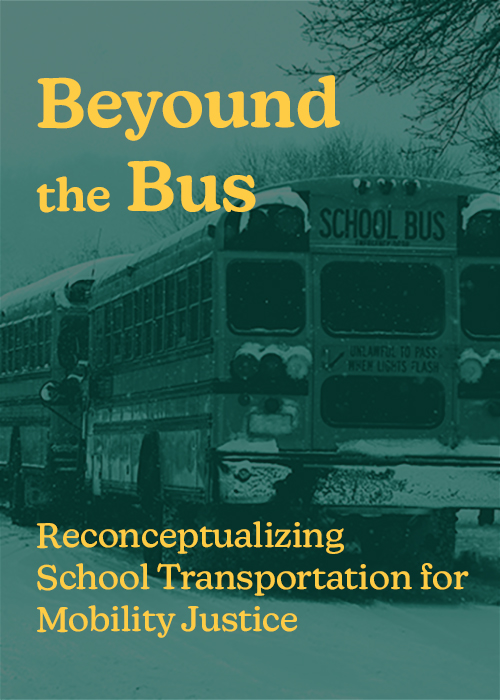
School Transit and Accessing Public School in Detroit
Students in the Detroit Public Community Schools District (DPSCD) have the highest rate of chronic absence (missing 10% or more of school days) among large districts in the United States. Additionally, students in DPSCD are among the poorest students in the country, often lacking access to reliable personal transportation or public transit to facilitate getting to school. Although DPSCD offers school-sponsored transit, only 30% of K-8 students were eligible for such transit in 2018-19. Through the use of multilevel modeling, we sought to identify the association between eligibility for school-sponsored transit and attendance. Our findings indicated that there was a negative association of small magnitude between eligibility for school sponsored transit and school attendance. This counterintuitive finding may highlight the fact that transit eligibility is not sufficient to mediate the negative relationship between student poverty and attendance, and transit eligibility does not guarantee regular use of school-sponsored transit.
